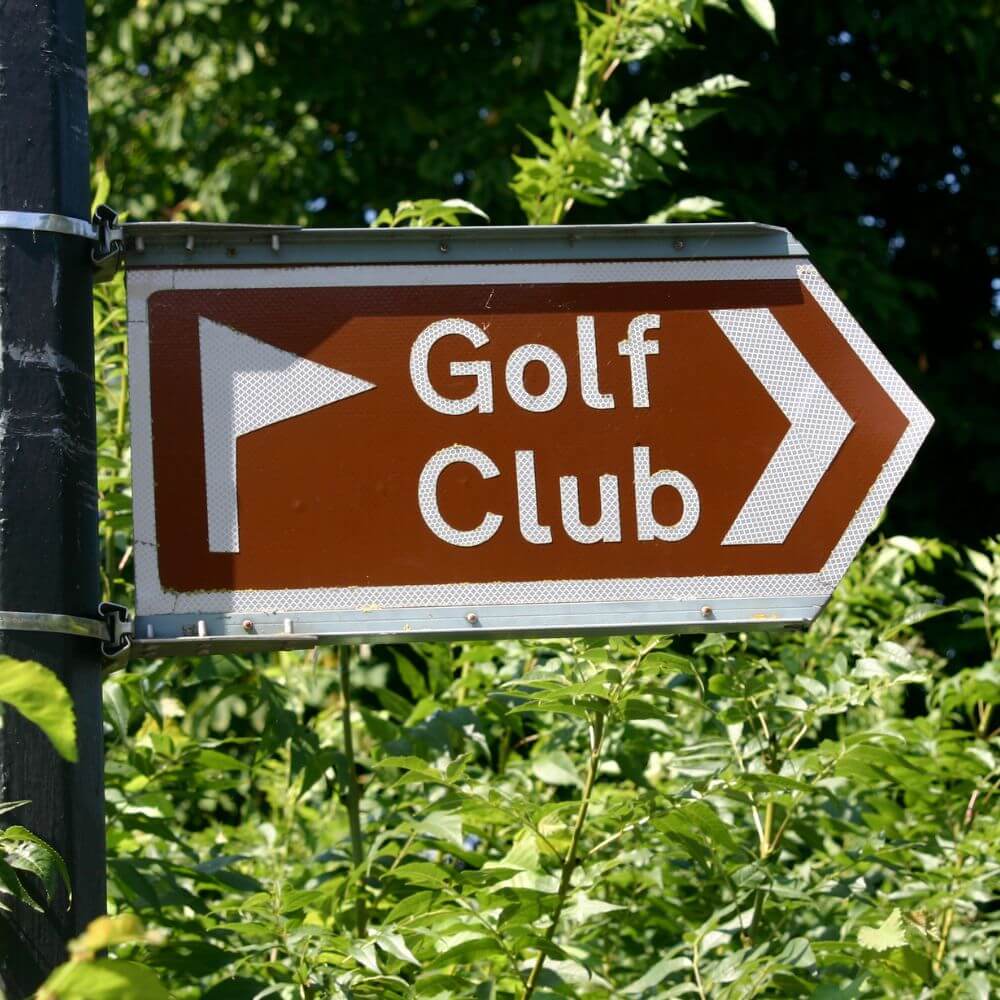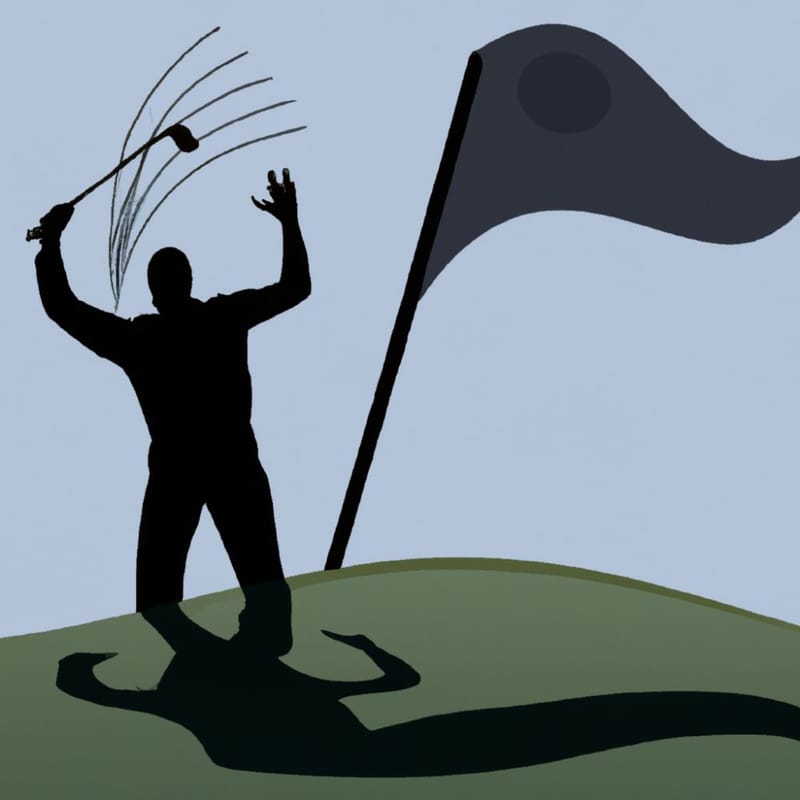Content Summary
Have you ever been out playing golf and wondered what might be happening to the state of golf course etiquette?
Golf etiquette is an essential component of the game. It is the set of rules and customs that players must follow to ensure that the game is played with respect for the course, other players, and the sport's traditions.
Recently, when I've been out playing a round of golf I've noticed that there seems to be a bit of over casualness that is starting to permeate the game of golf, so I thought I would address golf etiquette in a bit more detail here to possibly help those who never really learned the do's and don'ts of golf etiquette and also include some additional rules of the game.
Golf etiquette is not just about rules; it is a fundamental part of golf's culture, and players are expected to show sportsmanship and honor while on the course.
While some of these rules are based on common sense and respect for other players, others are steeped in tradition and are part of the game's history and culture.
The current state of golf etiquette is a mix of tradition and modernity. Although golf is steeped in tradition golf etiquette has also evolved to reflect changes in technology, demographics, and cultural norms.
Many of the longstanding rules of golf etiquette still apply today for many golfers, such as repairing divots and ball marks, being quiet during other players' shots, and not walking on other players' putting lines. However, golf etiquette has also evolved to reflect changes in technology, demographics, and cultural norms.
For example, the use of cell phones on the course is now common, but golfers are expected to use them respectfully and not disturb other players.
As golf continues to evolve, so too will golf etiquette. In this article, we will provide an overview of some of the do's and don'ts and rules of golf etiquette, including some of the lesser-known rules. We will also provide a view into the future of golf etiquette, discussing how the game may change and how etiquette rules may evolve.
Do's of Golf Etiquette
- Repair your divots and ball mark: One of the most important aspects of golf etiquette is repairing divots and ball marks on the green. This helps to keep the course in good condition for other players and shows respect for the game.
- Be quiet during other players' shots: Golf is a game that requires focus and concentration, so it's important to be quiet and respectful during other players' shots. This includes not talking, moving, or making any unnecessary noise.
- Follow the dress code: Golf has a dress code that varies from course to course, but generally requires players to wear collared shirts, shorts or pants, and golf shoes. It's important to follow the dress code to show respect for the course and other players.
- Be on time: Arriving on time for your tee time is an important aspect of golf etiquette. This helps to keep the pace of play moving and shows respect for the course and it's employees.
- Let faster groups play through: If your group is playing slowly and there is a faster group behind you, it's important to let them play through.
Be aware of your surroundings: Golf courses can be dangerous places if players are not aware of their surroundings.
It's important to pay attention to other players' shots and be aware of any potential hazards, such as water or sand traps.
- Rake bunkers: If you hit your ball into a bunker, it's important to rake the sand after you hit your shot. This helps to keep the bunker in good condition for other players.
Don'ts of Golf Etiquette
- Don't use your cell phone on the course: While the use of cell phones on the course is now common, it's important to use them respectfully and not disturb other players. This means keeping your phone on silent, not talking loudly, and not taking calls during other players' shots.
- Don't hit into other groups: One of the biggest sins in golf is hitting into other groups. It's important to wait until the group ahead of you is out of range before hitting your shot.
- Don't take too long on the course: Golf is a game that requires patience, but it's important to keep the pace of play moving. Taking too long on the course can slow down play and frustrate other players.
- Don't walk on other players' putting lines: Walking on other players' putting lines can damage the green and affect the roll of the ball. It's important to walk around the putting line to show respect.
Don't over consume alcohol: It's important to remember that golf courses are public places and alcohol should be consumed responsibly.
Many courses have strict rules about the amount of alcohol that can be brought on the course, so it's important to check with the course before bringing any alcohol.
Additionally, players should not consume excessively during a round, as this will affect their play and show a lack of respect for the game.
Additional Golf Etiquette Rules
Don't talk while others are hitting
One of the most important aspects of golf etiquette is to be quiet and respectful while others are hitting. This means a golfer refraining from talking, moving, or making any unnecessary noise while another player is preparing to hit.
Golf is a game that requires focus and concentration, and players must be able to concentrate on their shots without distractions.
Obey cart path rules
Most golf courses have cart path rules that players must follow. These golf carts rules are on your side to protect the course and ensure that the game is played fairly.
For example, some courses may require players to stay on the cart path at all times, while others may allow players to drive on the fairways. It's important to know and follow the cart path rules to avoid damaging the course and to show respect for the game.
Practice putting with no more than three of your own balls
When practicing putting, it's important to be mindful of other players. Most courses have putting greens where players can practice their putting before the round.
When practicing, it's important to limit the number of golf balls you use to three or less. This helps to prevent congestion on the putting green and shows respect for other players who may also want to use the green.
Show up 15 minutes early to check-in
Arriving on time for your tee time is an important aspect of golf etiquette. However, it's even better to arrive early.
Arriving 15 minutes early gives you time to check-in, warm up, and prepare for your round. This helps to keep the pace of play moving and shows respect for the other players.
Don't provide swing tips unless requested
Golfers love to give and receive advice on their swings. However, it's important to be mindful of when and how you offer advice.
Unless someone specifically asks for advice, it's generally best to keep your thoughts to yourself. Unsolicited advice can be distracting and may not be helpful to the other player.
Don't walk while others are putting
Walking on someone's putting line can damage the green and affect the roll of the ball. It's important to walk around the putting line to show respect for the other player and the course. If you need to cross the line of sight again to get to your ball, do so quickly and carefully.
Take no more than three minutes to search for a lost ball
Golf can be a frustrating game, especially when you lose a ball. When searching for a lost ball, it's important to be mindful of the pace of play.
Don't spend too much time looking for your ball. If you can't find it after three minutes, declare the ball lost and move on.
Play ready golf
Playing ready golf is a new concept designed to keep the pace of play moving. It encourages players to hit their shots when they are ready, rather than waiting for their turn in traditional order. This can help speed up the game and reduce frustration for all players.
Always yell fore on wayward shots
The most important rule of golf etiquette is to always yell "fore" when you hit a shot that could endanger other players. This gives them time to duck or take cover, and shows respect for their safety.
Know the rules of golf
Finally, it's important to know the rules of golf and abide by them. This will help you play fairly and ethically, as well as ensure that you are following the etiquette guidelines.
Visibly getting upset over your game
It's important to remember that golf is a game and you should always show respect for the other players, even if you are not having your best day.
Visibly getting upset over your game can be intimidating for other players and disrupt the atmosphere of the course. Instead, try to stay positive and keep your composure.
Standing over your ball way too long to hit your shot
Golf etiquette dictates that players should not take too long to hit their shots. Taking an excessive amount of time, especially when in the tee box, to hit a shot can slow down the pace of play and frustrate other players.
It's important to keep your pre-shot routine concise and get ready to hit your shot in a timely manner.
Taking too many practice swings
Golf etiquette dictates that you should take no more than two practice swings with your golf club before hitting your shot. Taking too many practice swings can slow down the pace of play and disrupt the flow of the game.
Cheating
Cheating is never acceptable in golf. All players should strive to play fair and with integrity at all times. Cheating can ruin the game for everyone involved, so it's important to always be honest and follow the rules of the game.
Not showing up and have the courtesy to inform your group in advance
One of the most important aspects of golf etiquette is to show up on time for your tee time. If you can't make it, it's important to let your group know ahead of time so that they don't have to wait for you. This shows respect for their time and helps keep the pace of play moving.
Playing music on the course
Music can be a great way to relax on the golf course, but it's important to keep the volume low and respect other players. Playing music too loudly can disrupt others' concentration, so it's best to keep the sound contained within your own group.
Not ready to go when it's your turn
Golf, etiquette rule dictates that players should be ready to hit their golf ball when it is their turn. If you're not ready, it's important to let the other players know and give them time to prepare for their shots while you get ready.
This will help keep the pace of play moving, especially in the tee boxes, and show respect for your playing partners.
Commenting on other people's shots
Commenting on other people's shots is generally considered extremely rude and bad golf etiquette.
While it can be tempting to offer advice or critique to other golfers and your golf buddies, it's important to remember that everyone has their own style and swing. Offering unsolicited advice can be distracting and may not be helpful to the other player.
Not replacing your divots
Replacing your divots is an important part of golf etiquette. This helps to keep the course in good condition for other players and shows respect for the game.
If you make a divot, take a few moments to fill it in with some of the sand or soil nearby. This will help ensure that the course stays in top condition.
Our thoughts on the future of golf etiquette
Golf etiquette has been an integral part of the game for centuries, and it is likely to remain so in the future. The core principles of respect, honesty, and sportsmanship are timeless values that transcend generations and cultures.
However, the specific rules and customs of golf etiquette may evolve and adapt to changing social norms and technological advancements.
For example, golf courses may implement new policies regarding the use of smartphones and other electronic devices, and players may be expected to demonstrate more environmentally friendly behaviors.
Moreover, golf etiquette may become more inclusive and diverse to reflect the changing demographics of golfers worldwide. This could include new guidelines for addressing players of different genders, ages, abilities, and cultural backgrounds.
Ultimately, the future of golf etiquette will depend on the collective actions and attitudes of golfers, course managers, and governing bodies.
As long as golfers continue to uphold the core principles of respect, honesty, and sportsmanship, the etiquette of the game should remain strong and relevant in the years to come.
Conclusion
Golf is a sport of respect and tradition, and golf etiquette is an essential part of the golf game.
Knowing these do's and don'ts are just a few of the many rules of golf etiquette that players should follow and will help to ensure that everyone has an enjoyable and respectful round of golf each and every time.
Thank you for visiting, and we hope to see you back soon!








